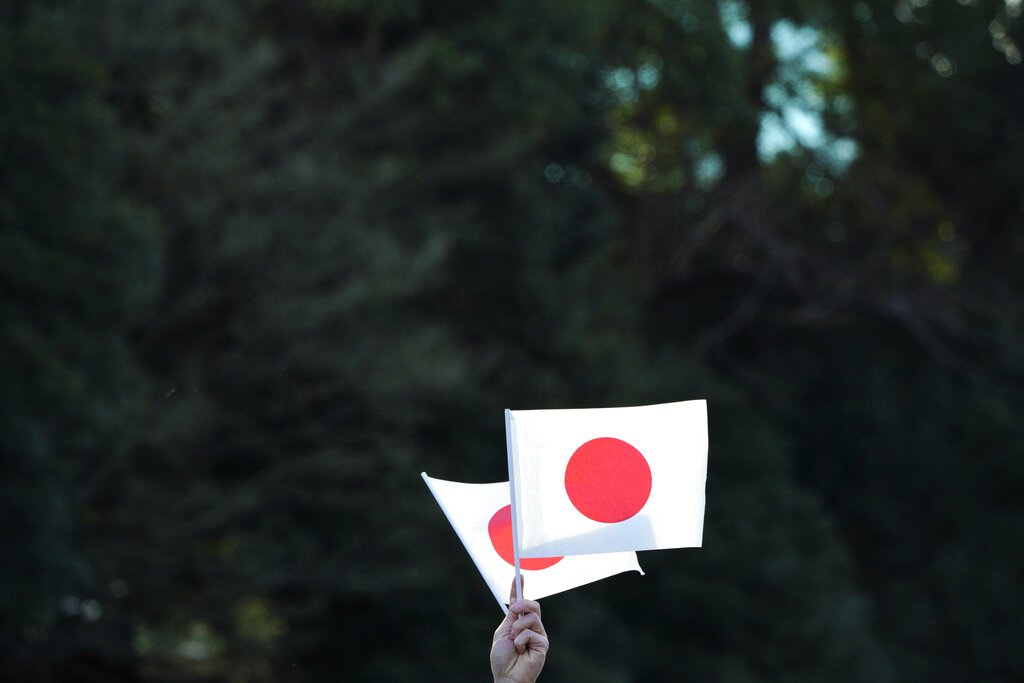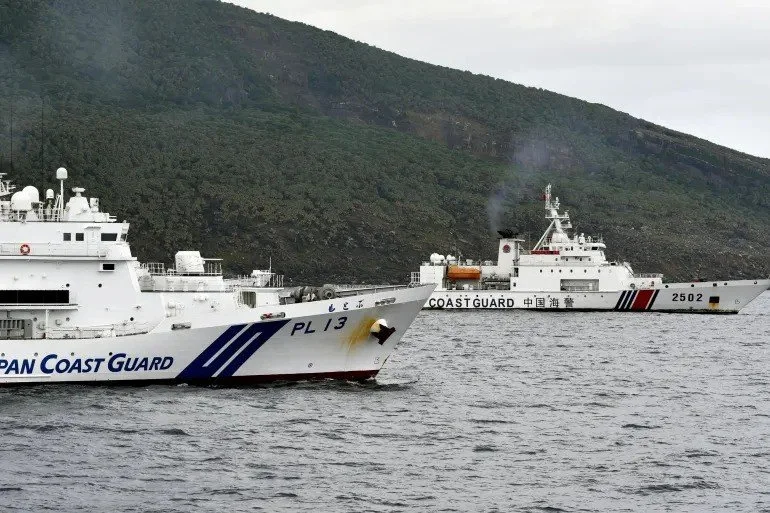Japan and EU Forge Strategic Defense Pact Amid Rising Tensions in Indo-Pacific
A visitor waves Japanese flags while waiting to see Japan's Emperor Naruhito's New Year public appearance with his imperial families at Imperial Palace in Tokyo Thursday, Jan. 2, 2020, in Tokyo. (AP Photo/Eugene Hoshiko)
In a historic move on Nov. 1, Japan and the European Union joined together in formalizing a security and defense partnership aimed at addressing growing problems within the Indo-Pacific region. The pact signifies a deepening relationship between Tokyo and Brussels, as both raise concerns over increasing Chinese influence as well as heightened Russian military aggression. By strengthening their defensive ties, Japan and the EU seek to promote regional stability and counteract authoritarian influence, which both view as a growing threat to international order.
The main aims of the agreement include an emphasis on cooperation towards maritime security, cyber defense, and technology sharing to strengthen mutual resilience. Additionally, EU President Charles Michel described the partnership as a necessary step towards ensuring a secure and stable Indo-Pacific, reflecting both parties shared common interest in upholding international norms within that area. Especially given that the South China Sea is at a critical juncture for global trade, ensuring freedom within that region, for international navigation, as well as deterring aggressive-like territorial claims, are critical goals highlighted by this alliance. It signals that both powers have committed fully to joint responses towards the posed China militarization within the Indo-Pacific, and Russia’s front against Ukraine, both respectively being Japanese and European security concerns.
A Chinese and Japanese Coast Guard vessel sailing off the coast of the disputed Senkaku Islands in Japan (referred to as the Diaoyu Islands in China). (Photo: Reuters)
For Japan, deepening its defense ties with European powers is a strategy being employed to counterbalance the growing security threats within Asia. Former Japanese Prime Minister Fumio Kishida increased Japanese military spending and revised the country’s security policies in response to the growing Chinese naval presence near Japanese territory. This partnership is a method by which Japan can dually increase its defensive capabilities while signaling to its regional neighbors, such as China and its close ally North Korea, Japan’s intention to play a larger role in safeguarding the Indo-Pacific region. This signing comes a month after the sighting of a Japanese defensive ship within the Taiwan Strait for the first time since territorial disputes over the island began, a preemptive defense action taken by Japan to signal their credibility to strengthen ties with the West to counteract China’s influence in Asia.
Japan’s interest in working with Europe for security measures reflects a shift in the country’s policy. Previously, their post-World War II strategy focused on a limited military role, which has since evolved with Tokyo now more than willing to engage in defensive cooperation to protect interests and deter threats within the region. Additionally, EU commitment towards the Indo-Pacific has grown, as a response to China’s economic and military expansion. By establishing a defense partnership with Japan, Europe can assert their presence in the region, and extend security relations beyond pacts such as NATO. It enhances Europe’s role in protecting trade routes and expanding beyond the 2021 Indo-Pacific strategy, which called for a “more active and coordinated role” in securing the region’s stability. Through this alliance, both Japan and the EU will aim to shape the future of the Indo-Pacific, calling for open seas, democratic values, and international cooperation.


